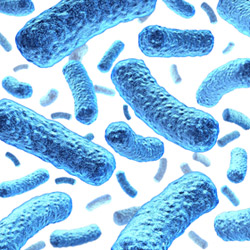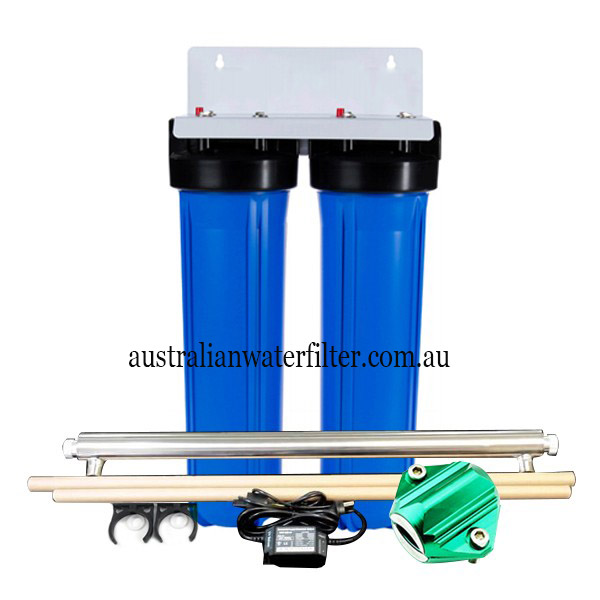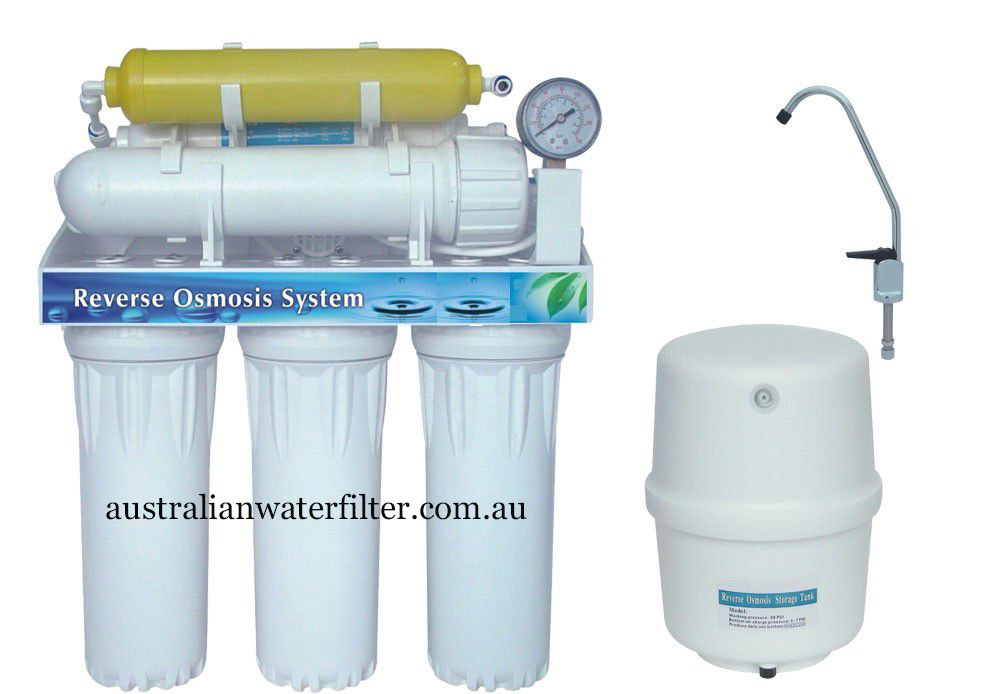Why do I need a home water filter.
There are a number of reasons you may decide to install a home filtration system, probably the most important is that you want to be confident that the water you are drinking is safe.
It is essential for your health and the health of your family that the water you drink is free from contaminants, it doesn’t matter where your water is coming from, be it a local supply authority, a rainwater tank, a Dam, a bore or river, all these water sources have the potential for contaminants.
The only way to be certain that the water you are using is safe, is to install a filtration system right at the end of the supply (your home), this is called a point of use filtration system.

E-coli bacteria.
Water Contaminants
Before we look at water filters we first need to know what contaminants might be in our water, well there are an estimated 70,000 possible contaminants in water, these include
- Heavy metals ( lead, iron and arsenic)
- Toxic chemicals (pesticides and industrial waste)
- Parasites
- Bacteria
- Mineral salts (Fluoride)
- Chlorine
These contaminants can get into our water supply in a number of ways:
- They can be in the source water before it goes to the treatment plant.
- They can be dosed into the water at the treatment plant.
- They can be in the reticulation system (the pipes that come to your house).
- They can be washed into water tanks from roof’s.
- They can be washed into Dams and rivers from rainfall.
Filter types.
There are a number of different filter types available for the home user, the type of filter will depend on the application, we will describe the filters and the recommended applications
Reverse Osmosis is best suited to homes on municipal water supply, it requires pressures of over 350Kpa and has a yeild of between 1:1 and 1:2, this means that for every litre of drinking water, there will be 1 litre of waste water (1:1) the waste water can be used to water the garden or simply put down the drain where it will make it’s way back into the rivers or water supply.
RO systems come in different configurations from 3 to 7 stage systems, as a minimum they should be a 3 stage system: sediment filter – Activated Carbon filter – RO membrane, they can also be fitted with a booster pump for places with low water pressure.
RO is also non selective, this means that it will remove all minerals from the water, the good minerals as well as the bad, for this reason it is recommended that a post mineral filter is installed.
Because RO water is so pure it is used by food and beverage manufacturers like coca cola and bottled water suppliers, the taste of the finished product is not tainted by impurities and always tastes the same.
The cost of a typical RO system like the one pictured will cost between $250 and $750

Undersink filters
The next filtration unit on our list is the undersink filters, these filters normally consist of a Sediment filter, an Activated Carbon filter and a UV sterilizing unit.
These systems remove Chlorine and other toxic chemicals which is absorbed by the Activated Carbon, the UV unit then kills any bacteria in the water.
This type of filtration differ’s from RO in that all the water passes through the filters, there is no waste, particle’s are captured by the filter, depending on the filter used they can filter particle’s as small as 1 micron but they are typically 5 micron units.
The cartridges in these units eventually get blocked up and need replacing, on average you will need to replace these cartridges at least once a year, or more often if you have particularly dirty water.
This type of filtration is recommended for water coming from rainwater tanks, rainwater tanks can have all sorts of impurities, bird and rat droppings wash into the tanks from roofs as well as organic matter like leaves, this material decomposes in the tanks where bacteria will grow. It is highly recommended that if this is for rainwater use that a UV filter is also installed.
This system can also be installed in houses on municipal water supplies, it won’t remove fluoride or other mineral salt’s but it will remove toxic chemicals, Chlorine, some heavy metals, bacteria and some parasites.
These systems normally retail from $150 to $350, we would recommend buying a normal undersink unit that takes standard cartridges, some units have special a cartridge systems that can be costly to replace.

Whole house systems.
Whole house systems are very similar to the undersink filters, the difference is that they have a much higher flow rate.
These systems normally contain a sediment Filter and an activated carbon filter, an optional UV filter can also be installed.
These systems are normally installed into the house plumbing system where the water mains comes into the house
Whole house systems, also referred to as big blue, are used to filter all the water entering the house, undersink units only filter the water going to the sink, whole house units filter all the water including bath and shower water.
These systems are good for the removal of Chemicals (including Chlorine), some heavy metals, they will not remove fluoride or other mineral salts.
Whole house units are recommended for rainwater and other non municipal water sources, because they remove Chlorine they are very good for people with sensitive skin conditions.
Whole house systems retail from $100 to $300.
Other sytems
We have covered the three main filtration types and what they do, all other filtration units are normally some version of these system, they come in different sizes and styles, they can be counter top units, wall mount units, stand alone cooler units or large commercial systems, but they all use these technologies. There are some other specialized water filtration systems but these are not normally found in residential applications.
Water Softners
The last system worth a mention here are water softners, these systems are normally installed where the water is very hard, when we talk about hard water it means it contains high levels of calcium, this calcium can build up in pipes and on heating elements.
Water softners are filled with a special resin, this is called an Ion exchange resin, as the water passes through the resin and an ionic reaction takes place, the calcium is swapped for sodium.
Author: Vince Nicholson
Date: 08/03/2018
